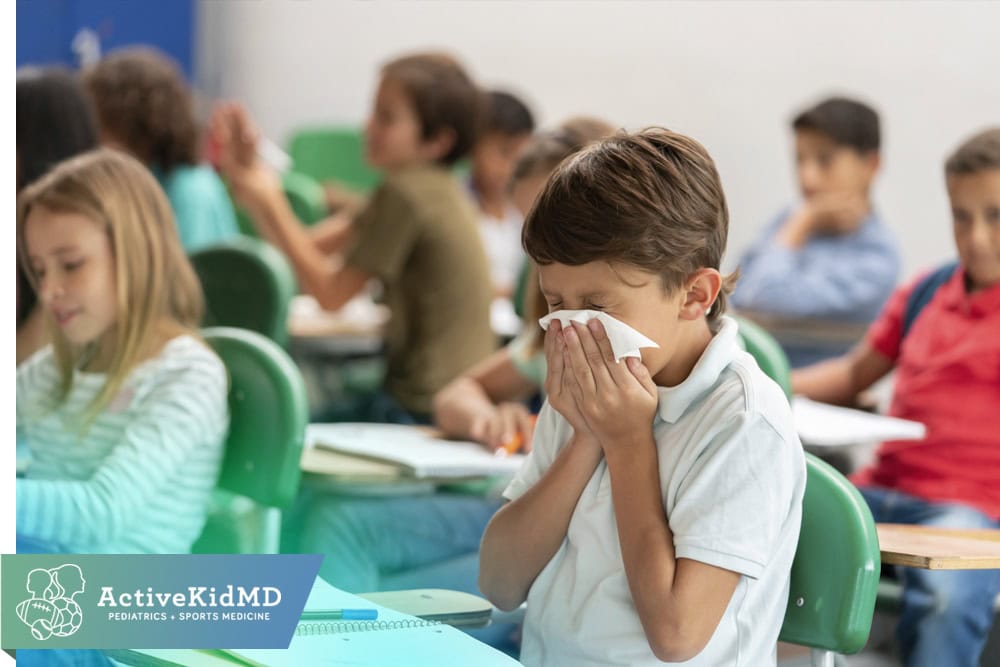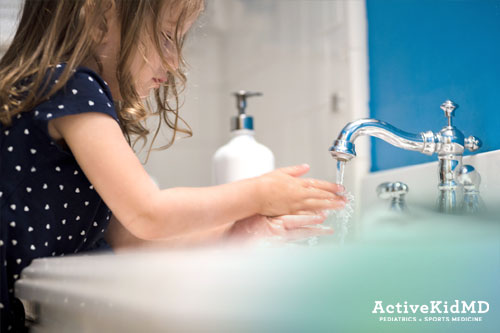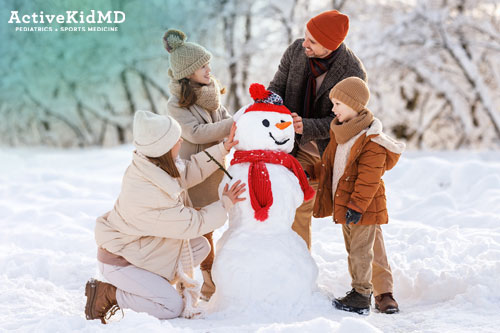The holidays are here and yes, that also means it is cold and flu season! Two common respiratory viruses circulating are Respiratory Syncytial Virus (RSV) and Influenza A/B (commonly known as the Flu). These and other respiratory viruses typically circulate in the U.S. between October and March. Symptoms usually range from cough, congestion, runny nose, sore throat, fever, wheezing, difficulty breathing and fatigue.
RSV
RSV, or Respiratory Syncytial Virus, is a common respiratory virus. It spreads from person to person in respiratory droplets but can live on surfaces for long periods as well. For most people, RSV causes minor cold symptoms. But for some, it can cause bronchiolitis (inflammation and congestion in the small airways of the lungs). Almost all children have had RSV by age two years. Most recover fine, however those with smaller airways, young or premature infants or those with underlying health conditions may have a harder time and have worse outcomes. These little ones can have wheezing and difficulty breathing. Typically, RSV gets worse before it gets better (days 3-5 of illness are often the worst). The incubation period is 4-6 days but can range from 2-8 days. Kids are MOST contagious for the first week after they begin symptoms, but some children (especially those with weaker immune systems) can be contagious for up to 4 weeks.
Just this year an RSV vaccine was approved for mothers in their last few weeks of pregnancy and newborn babies. This vaccine helps protect our smallest babies from hospitalization due to RSV.
FLU
Influenza A and B can vary in severity and is typically more severe for kids under age five years. Incubation period is 1-4 days after exposure. It is most contagious in the first few days of illness, although the pattern of viral infectivity varies a bit depending on the strain. Influenza B can actually be transmitted before symptoms even begin! Most of the time, you are no longer contagious about a week in. Flu is spread from person to person via respiratory secretions (sneezing, coughing, talking), contact with contaminated objects, and aerosolized particles that are released in the air during breathing.
The Flu shot can make a difference when it comes to minimizing severity and duration of illness.
 Prevention
Prevention
So how can these illnesses be minimized or prevented?
- Wash hands well with soap and water
- Minimize close contact
- Mask
- Wipe frequently trafficked surfaces such as doorknobs and counters
If you have an infant that is two months or younger, keep them away from non-essential people. If you are having visitors, make sure they wash their hands, wear a mask if they have any cold symptoms, and ask them to please not kiss the baby, doctor’s orders!
Because Flu and RSV are viral illnesses, antibiotics will NOT help! These types of illnesses primarily need TIME for your body to fight it. These illnesses are managed with rest, fluids, and pain/fever management. Congestion can be treated with saline and nose suctioning. Honey can be given for cough if they are one year or older. Humidified air such as a steam shower can help loosen thick mucus. Some children (especially those with wheezing) may also need breathing treatments.
Some children need to be hospitalized for help with breathing; this help can include supplemental oxygen, frequent nose suctioning and breathing treatments. Dehydration is a common reason for admission. Coughing, rapid breathing and fever increase the risk of dehydration. Most kids that are sick don’t eat or drink as well, which can further the problem. The key is to offer small frequent feeds after the nasal passages have been cleared of mucous.
If your child has a respiratory illness, make sure to see your pediatrician; especially if they are infants, have a history of prematurity, are wheezing, have trouble breathing, or show signs of dehydration.
Stay healthy and Happy Holidays!


 Prevention
Prevention
